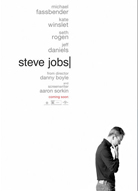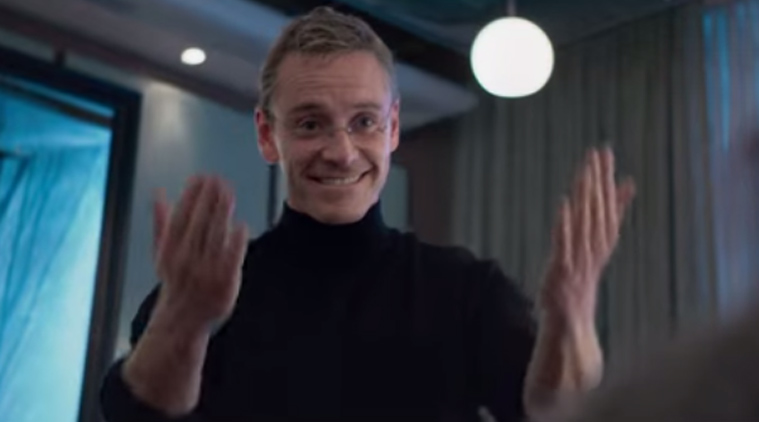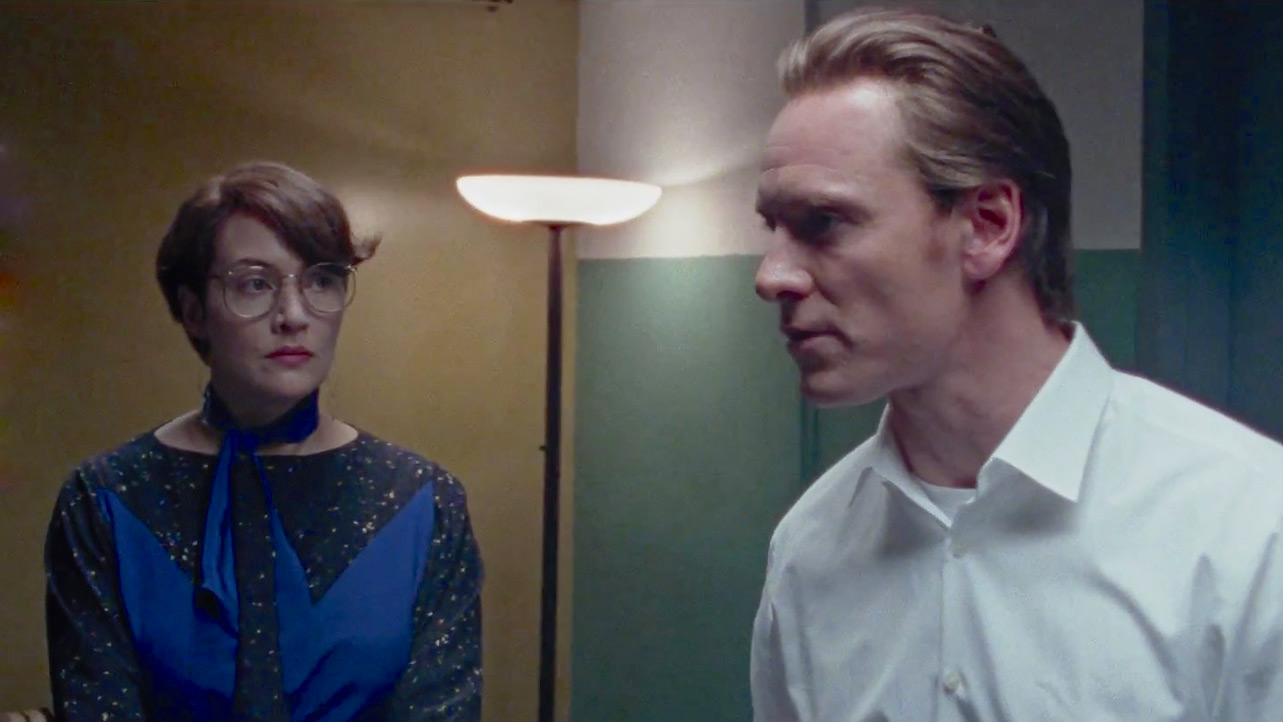 Reporting from the ongoing New York Film Festival here is Jason on Oscar hopeful "Steve Jobs".
Reporting from the ongoing New York Film Festival here is Jason on Oscar hopeful "Steve Jobs".
It should surprise no one that a movie directed by Danny Boyle and written by Aaron Sorkin is all about rhythm. The rhythm is established at the start (and Steve Jobs runs zero to sixty so you'd best get a grip quick) and pulses outwards like the blink of a cursor, or a techno beat. You could probably set your watch to it... if you were a maniacal math genius who could work out the exact algorithm they're working off of.
The new film is structured around three events in Jobs professional life: his first presentation of his Macintosh computer in 1984; the "perfect black cube" of the NeXT machine in 1988 after he was fired from Apple; and his triumphant return to the company a decade later with the crayola-tinted iMac every girl in my college dorm owned. Within each chapter, there are a series of sonnets of sorts, devoted to the folks in his life - his daughter, his work-wife, his boss, so on. The pieces shift once the rhythm is established, but structurally speaking the film is rigorous, in a (and I do not use these words lightly) soul-pleasing kind of way. Once you find your way in to Steve Jobs, there's this satisfaction in expectations, and the massaging thereof. [More...]
Of all the things in the world that it could have reminded me of, it chose Paranormal Activity ? Even if the acting or non-scares of that franchise don't "work" for you hear me out, because I don't think there's any arguing that they built a fine structure for themselves (which they've now driven into the ground). The married couple goes about documenting their life during the day. Then night comes, and bad things happen. Day is aftermath, darkness is scare. Day, night, day, night, light, scare, light, scare. The films work as a full-tilt brainwashing machine - as soon as the lights go out, they train your neck to tense up, so much so that the time-stamp in the corner of the screen becomes the source of tension - the bomb that Alfred Hitchcock warned us was under the table. Time and its passage becomes the underlying story, and the manipulation, the tweaks, its song.
And man, Steve Jobs sings! As each chapter unfolds and its rhythm is laid bare, you find yourself seeking out the familiar faces you know are coming -- wondering how the relationships have changed with time, longing to revisit with those you've come to know and enjoy. This might not have been as effective if (like those Paranormal Activity movies) you didn't like the actors, but every member of this Apple entourage is an orchestra unto themselves, giving gorgeous concertos in miniature. It's a pleasure, once and twice and three times, to watch them work. You might think the shrinking of shoulder pads is telling you all you need to know about time in this world, but you'd be wrong. Kate Winslet will shake you to your moon-boots with a sigh, a simple sigh, that feels a full lived-in decade older than the previous scene, and the power of great performance will imprint itself on you then and there.

And what a partner all of these individual instruments find in Michael Fassbender as the man himself. Fassbender is maybe the greatest duet partner working in the movies today. His wattage radiates outwards - he never feels alone, one-sided, even if its us the audience he's seducing, so its a gift to hand him a movie about the rotating relationships in which he spins the center. Come and watch Fassy play with Kate, with Jeff, with Seth, and set fire to Sorkin's speeches as Danny Boyle's camera swoops and rat-a-tats around them.
You come for some insight into your little iPhone screen and instead, they give you a full symphony.
